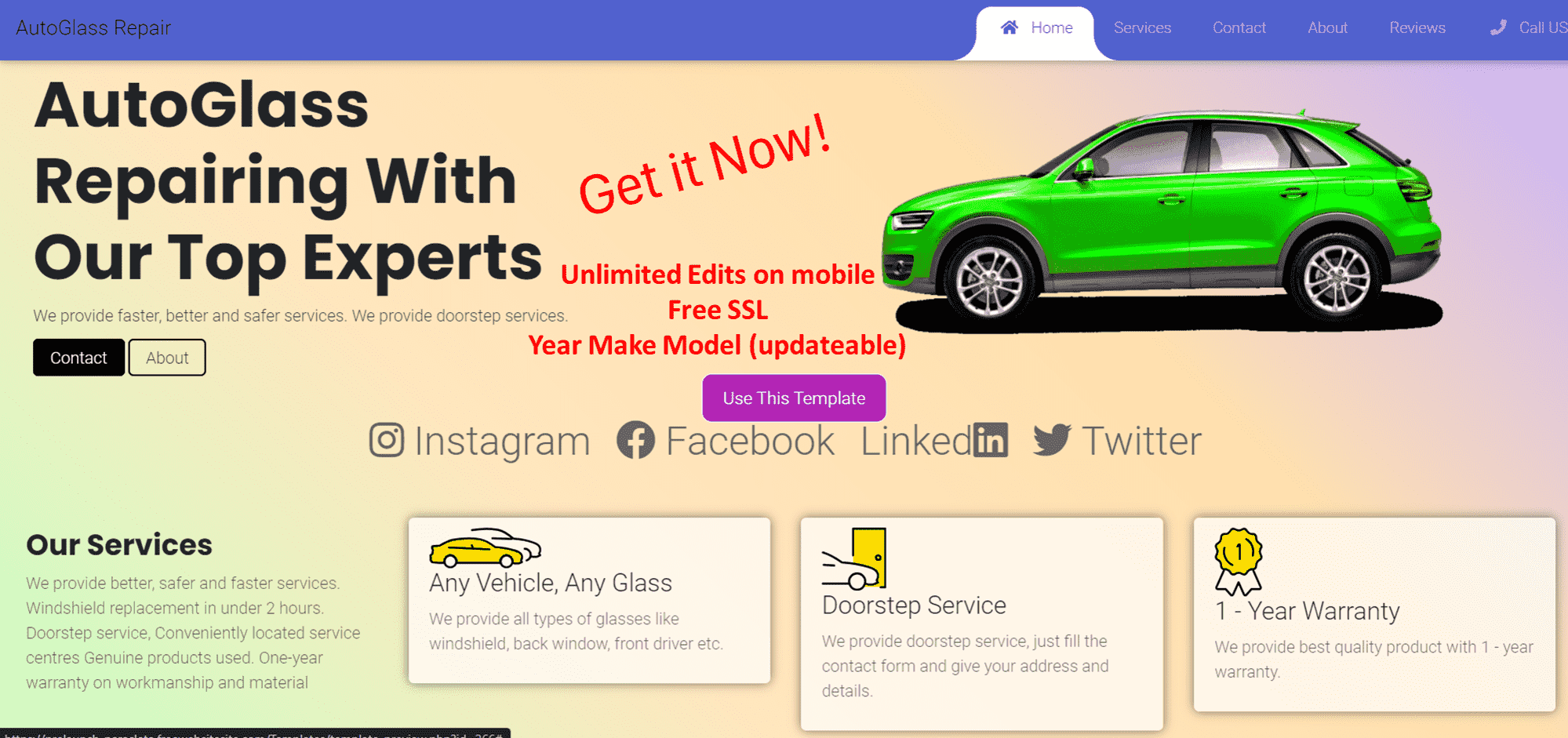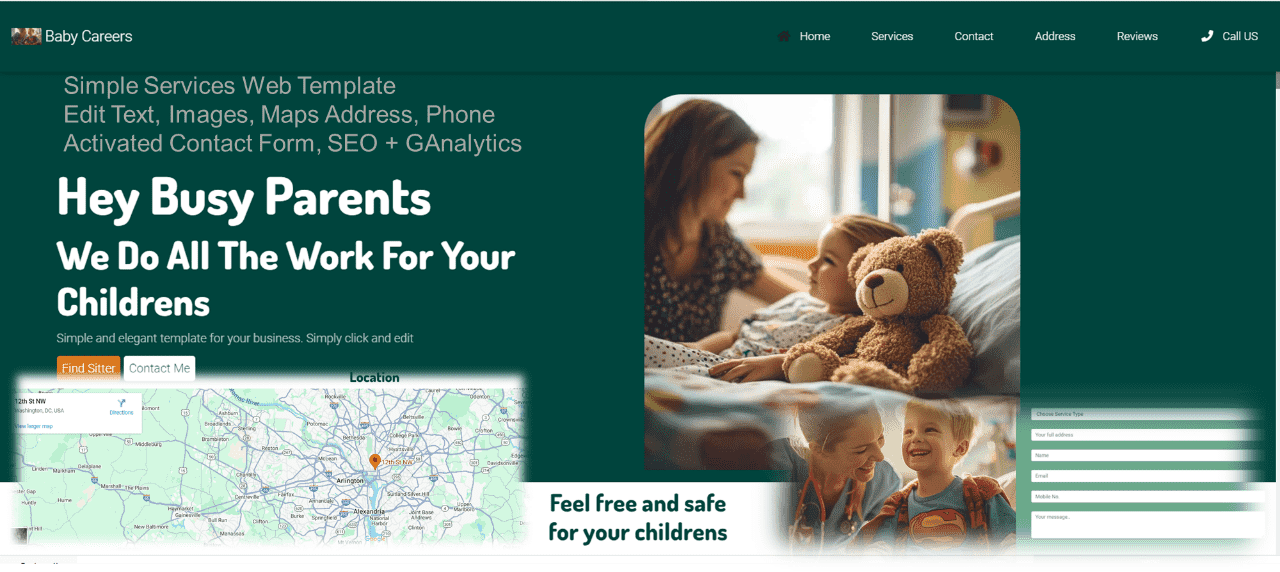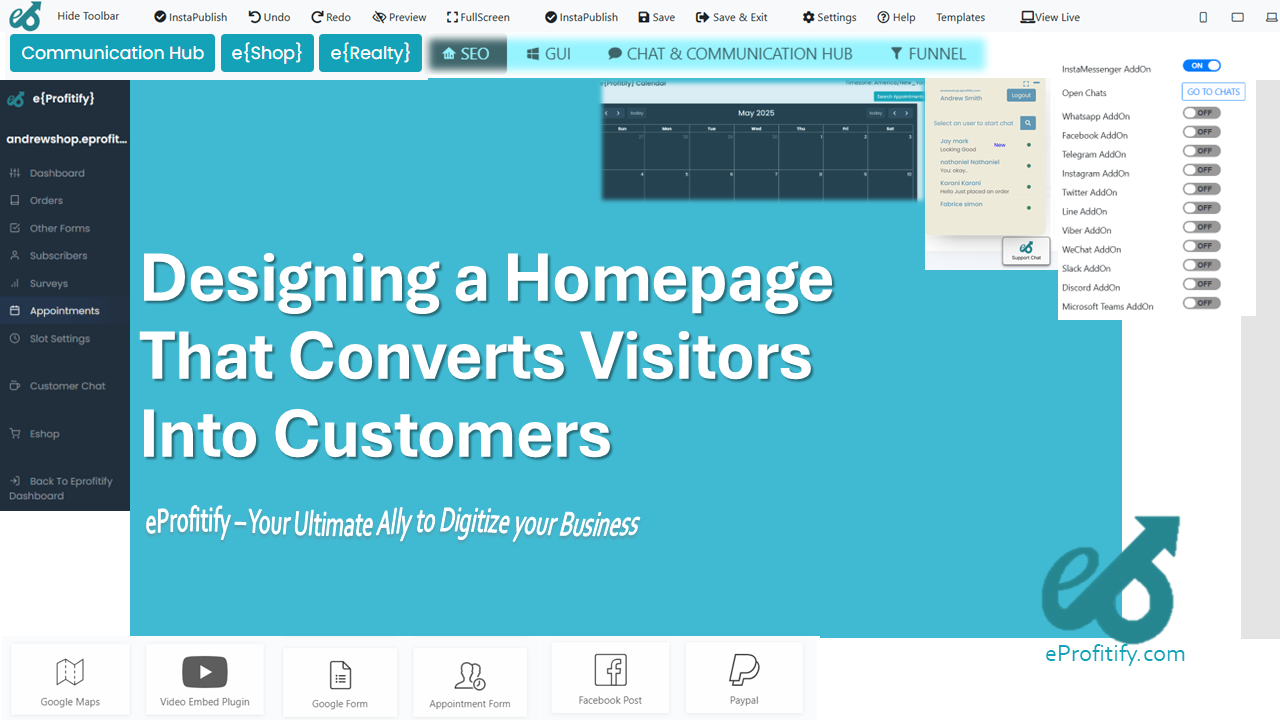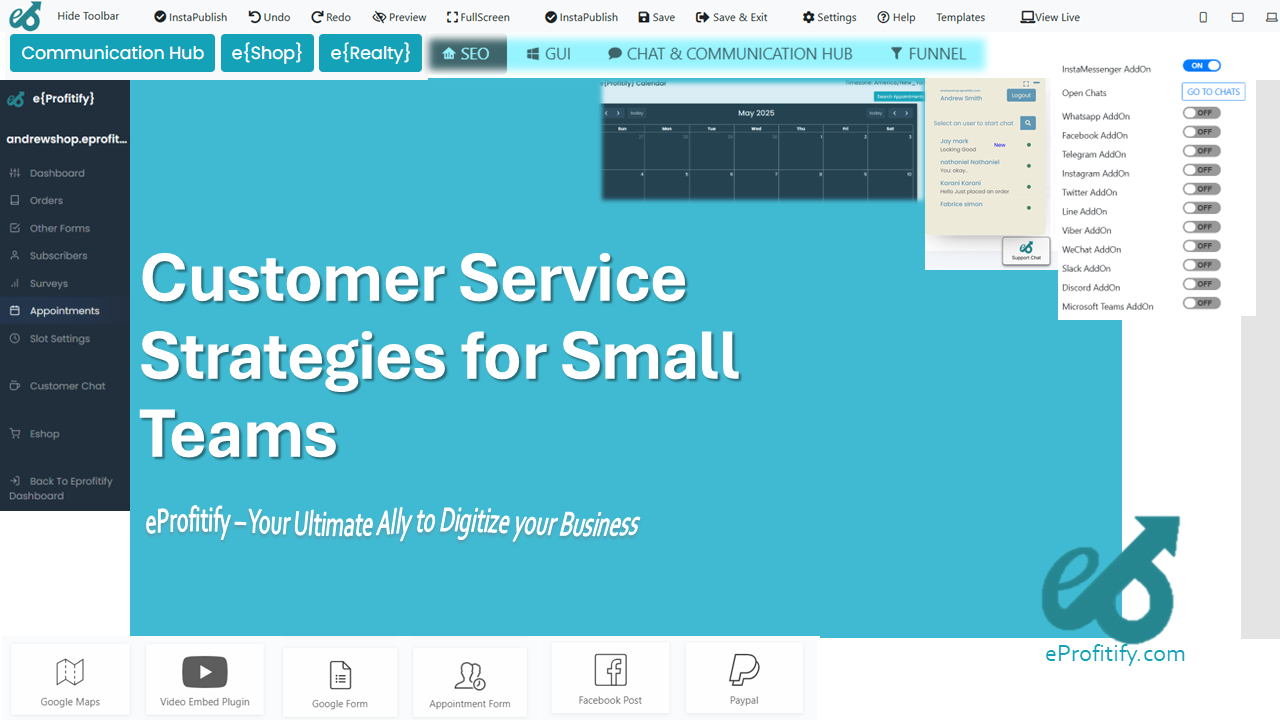Why Startups Need a Custom Website (Not Just a Template)
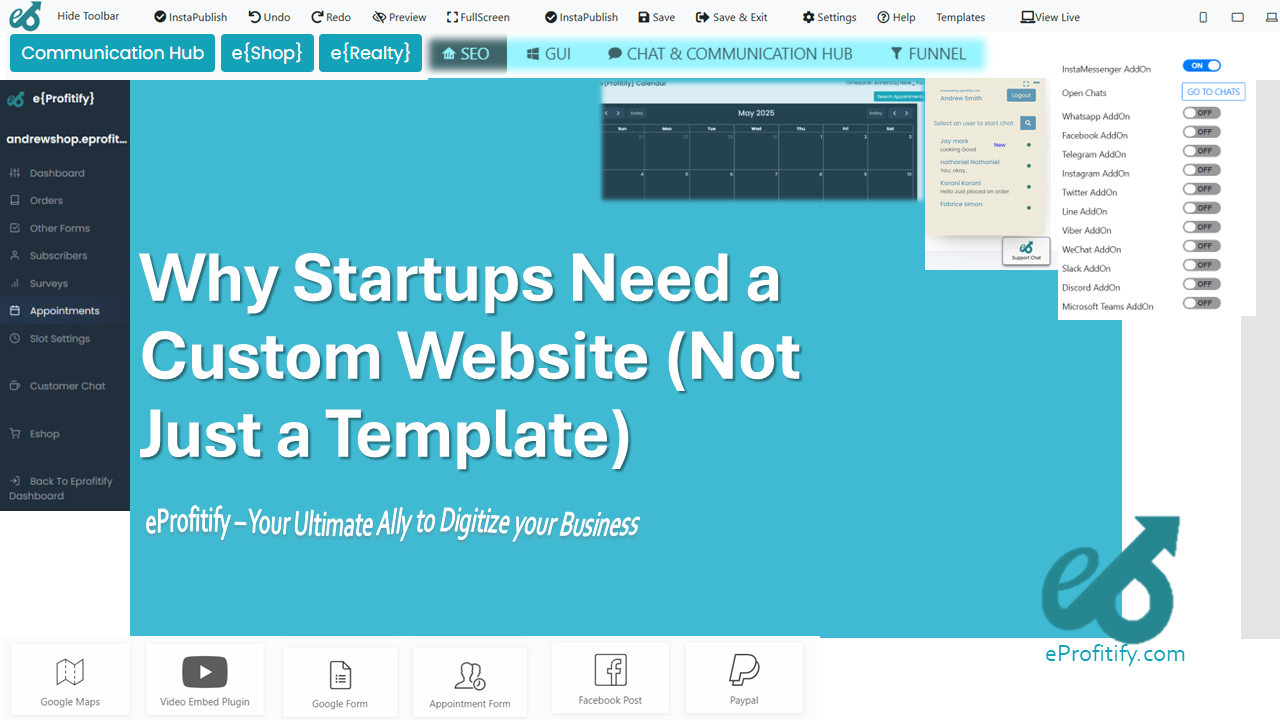
Why Startups Need a Custom Website (Not Just a Template)
In the digital age, a website is the cornerstone of a startup’s identity. While pre-made templates offer a quick and affordable solution, they often fall short of meeting the unique needs of growing businesses. Custom websites, on the other hand, provide scalability, brand differentiation, and advanced functionality that templates cannot match. This article explores why startups should invest in a tailored web presence, supported by industry statistics, and highlights eProfitify—a leading platform offering comprehensive website management tools—as a game-changer for modern businesses.
1. Brand Identity and Differentiation
A template-based website might save time, but it risks blending into the sea of generic designs. For startups, establishing a unique brand identity is critical to standing out in competitive markets. Custom websites allow businesses to:
- Reflect their mission, values, and aesthetics through bespoke design.
- Create memorable user experiences that align with their target audience.
- Avoid the "cookie-cutter" look that 48% of users associate with low credibility (Stanford Web Credibility Research).
Statistic: 75% of consumers judge a company’s credibility based on its website design, and 40% will not engage with a site if it appears outdated or unprofessional (Adobe).
eProfitify’s Role: The platform empowers startups to build visually distinct websites with tailored layouts, color schemes, and interactive elements, ensuring their brand leaves a lasting impression.
2. Enhanced User Experience (UX)
User experience directly impacts conversion rates and customer loyalty. Templates often lack the flexibility to optimize navigation, mobile responsiveness, or loading speeds for specific audiences. Custom websites enable startups to:
- Design intuitive interfaces that reduce bounce rates.
- Optimize for mobile-first experiences, as 74% of users are more likely to return to mobile-friendly sites (Google).
- Implement personalized content strategies that resonate with visitors.
Statistic: 88% of online consumers are less likely to return to a website after a poor experience, and 47% check a company’s site before making a purchase (HubSpot).
eProfitify’s Tools: With built-in UX analytics and A/B testing, eProfitify helps startups refine their designs to maximize engagement and conversions.
3. Scalability and Future-Proofing
Startups evolve rapidly, and their websites must adapt. Templates often lack the infrastructure to support growth, leading to costly migrations or redesigns. Custom websites offer:
- Modular architectures that scale with business needs.
- Seamless integration of new features, such as AI chatbots or subscription models.
- Compatibility with emerging technologies like AR/VR.
Statistic: 60% of small businesses using template-based sites eventually upgrade to custom solutions to accommodate growth (Forbes).
eProfitify’s Advantage: The platform’s scalable infrastructure supports startups at every stage, from MVP launches to enterprise-level expansions.
4. SEO and Performance Optimization
Search engine visibility is non-negotiable for startups. Custom websites allow for:
- Clean, SEO-friendly code that improves crawlability.
- Faster load times (critical, as 40% of users abandon sites taking >3 seconds to load).
- Tailored metadata and schema markup for higher rankings.
Statistic: 61% of marketers cite improving SEO as their top inbound marketing priority (BrightEdge).
eProfitify’s Edge: The platform includes automated SEO tools, performance dashboards, and CDN integration to ensure startups rank higher and load faster.
5. Advanced Features for Operational Efficiency
Here’s where eProfitify shines. Unlike basic templates, the platform offers an all-in-one suite of enterprise-grade tools:
- Instant Messaging: 50% of users prefer brands offering real-time chat (Kayako).
- Appointment Management: Streamline bookings with automated reminders and calendar sync.
- eCommerce Integration: Built-in payment gateways, inventory tracking, and tax calculators.
- CRM: Centralize customer data to boost retention (businesses using CRM see 30% higher retention rates).
- Analytics: Track user behavior, sales pipelines, and marketing ROI.
Statistic: 80% of businesses using integrated tools like eProfitify report improved operational efficiency (Gartner).
6. Security and Compliance
Templates are frequent targets for hackers due to outdated plugins and shared vulnerabilities. Custom websites provide:
- Enhanced security protocols like SSL encryption and regular audits.
- Compliance with GDPR, CCPA, and industry-specific regulations.
Statistic: 60% of SMBs hit by cyberattacks shut down within six months (Cybersecurity Ventures).
eProfitify’s Safeguards: The platform offers automated backups, DDoS protection, and PCI compliance for eCommerce.
7. Long-Term Cost Efficiency
While templates seem cheaper upfront, custom websites reduce long-term costs by:
- Minimizing redesign expenses as the business scales.
- Eliminating reliance on multiple third-party plugins (which cost the average business $1,200/year).
Statistic: Startups using custom sites report a 50% higher ROI over three years (Clutch).
Conclusion
For startups, a custom website is not just a luxury—it’s a strategic asset. From fostering brand loyalty to enabling scalable growth, the benefits far outweigh the initial investment. Platforms like eProfitify amplify these advantages by combining bespoke design with powerful tools like CRM, eCommerce, and real-time analytics. In a digital landscape where 90% of users abandon sites due to poor design (Stanford), startups must prioritize a tailored web presence to survive and thrive.
By choosing eProfitify, businesses gain a partner that simplifies website management while delivering the innovation needed to stay ahead. After all, in the race for market share, a custom website isn’t just an option—it’s the ultimate competitive edge.
Word Count: ~1,000

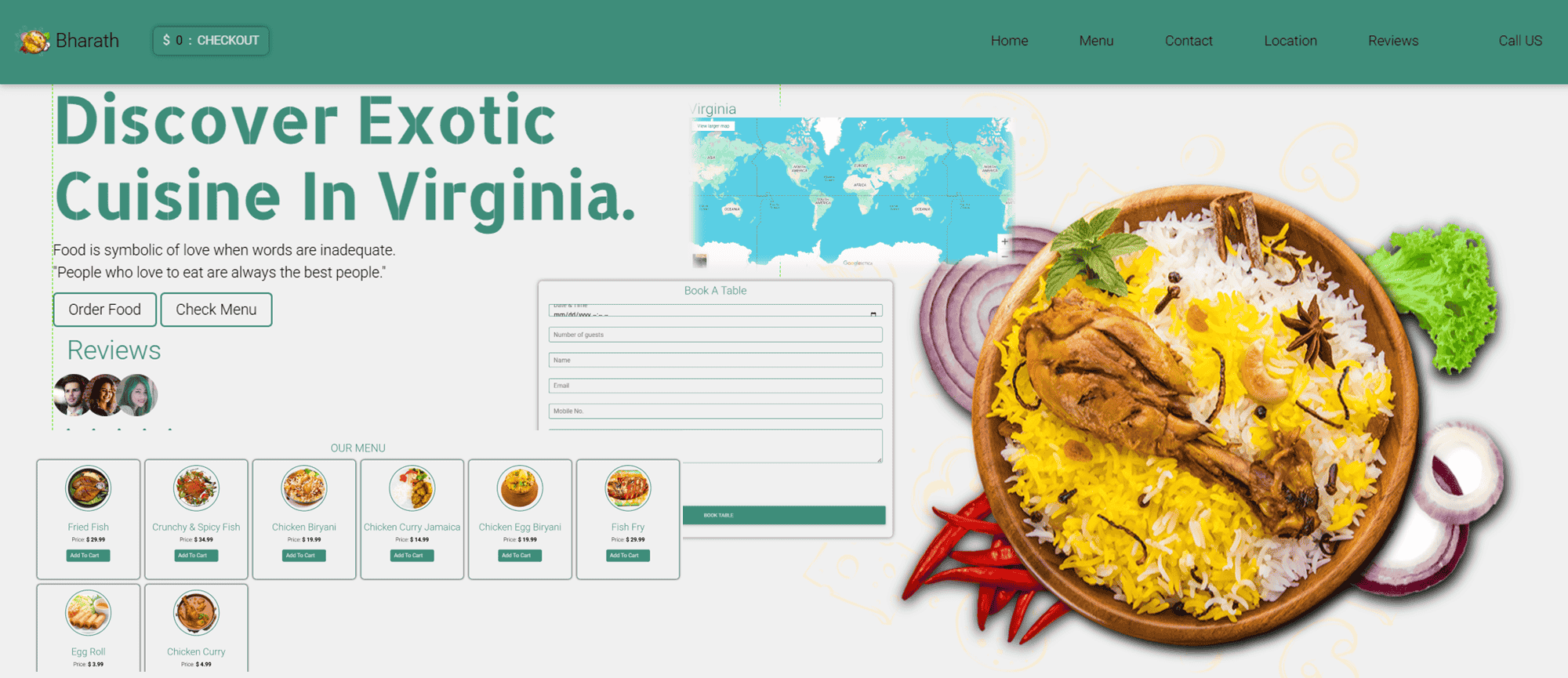
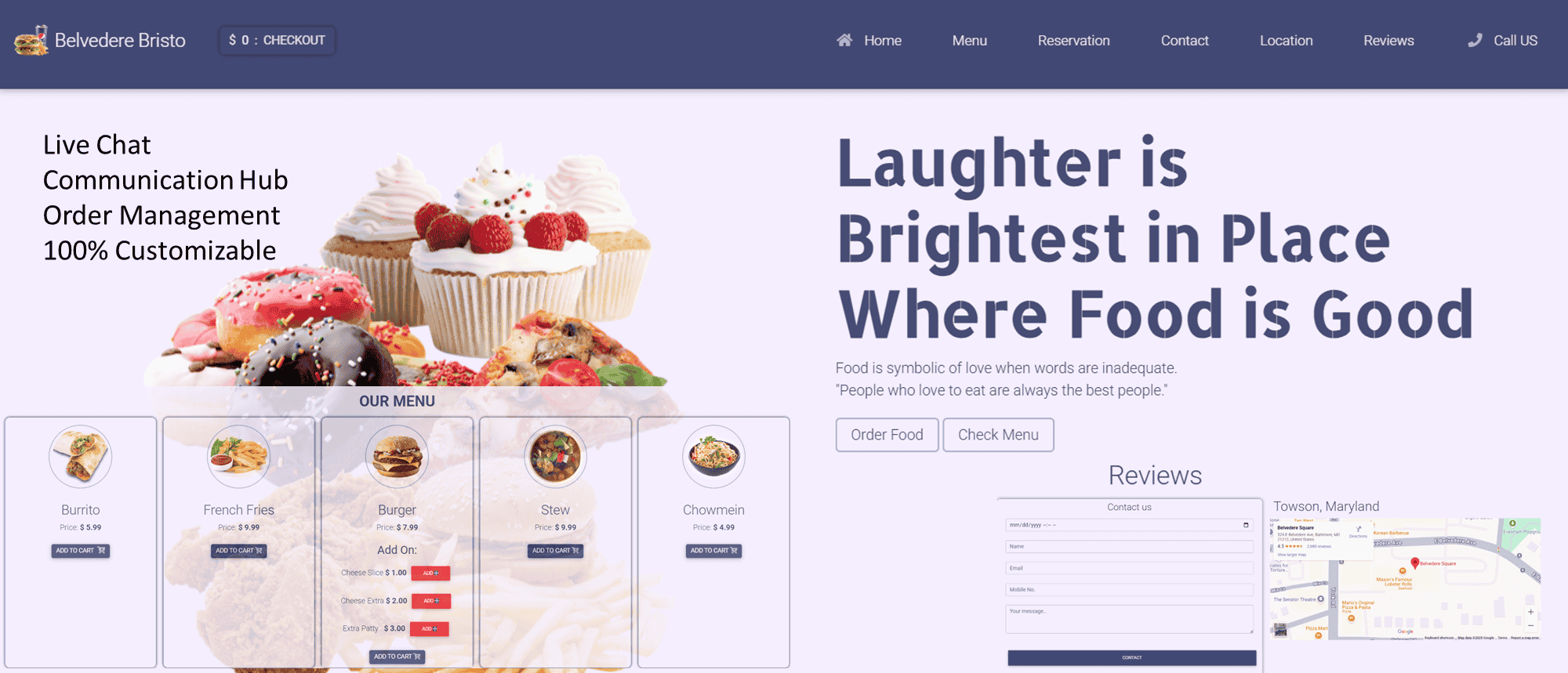
.png)
